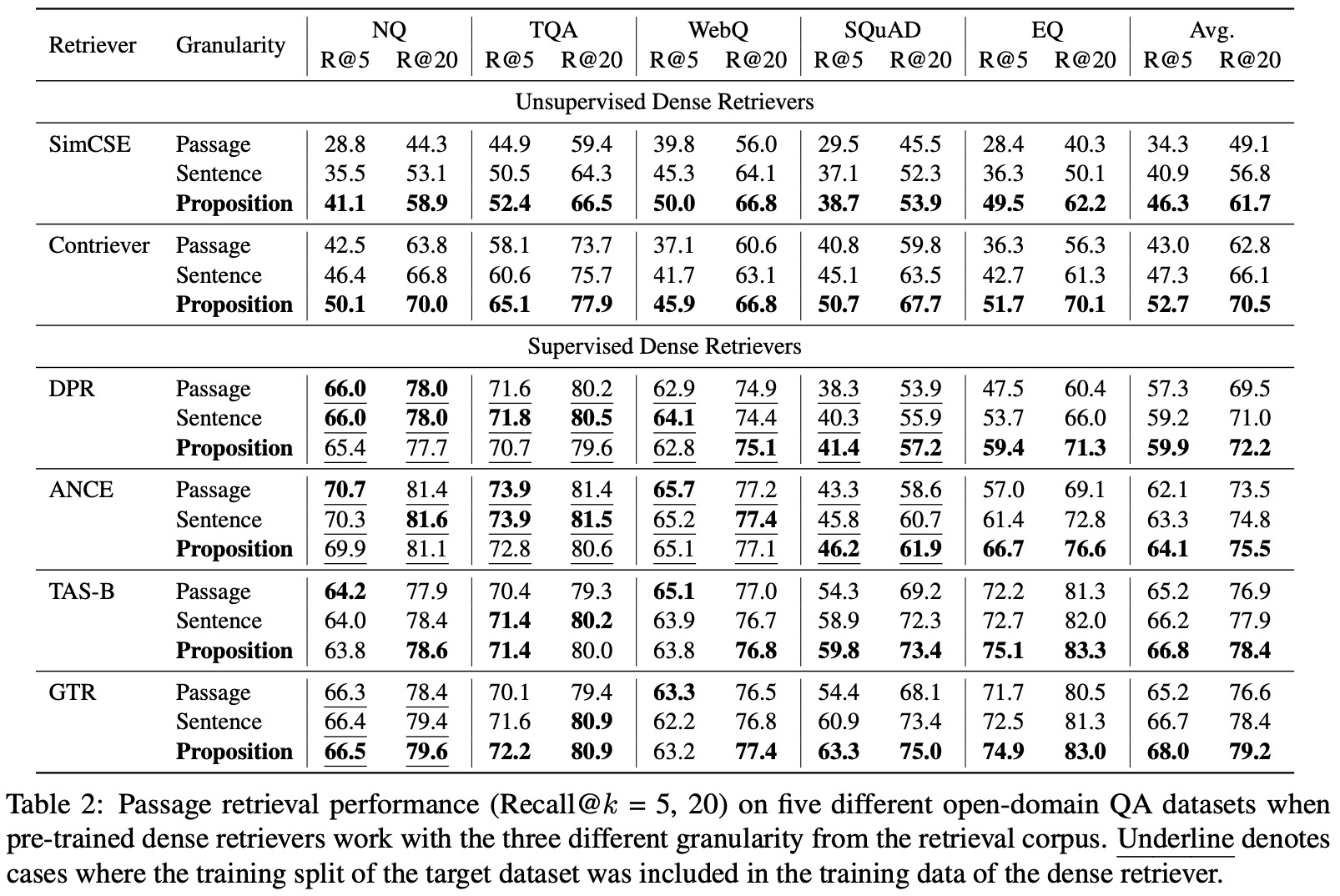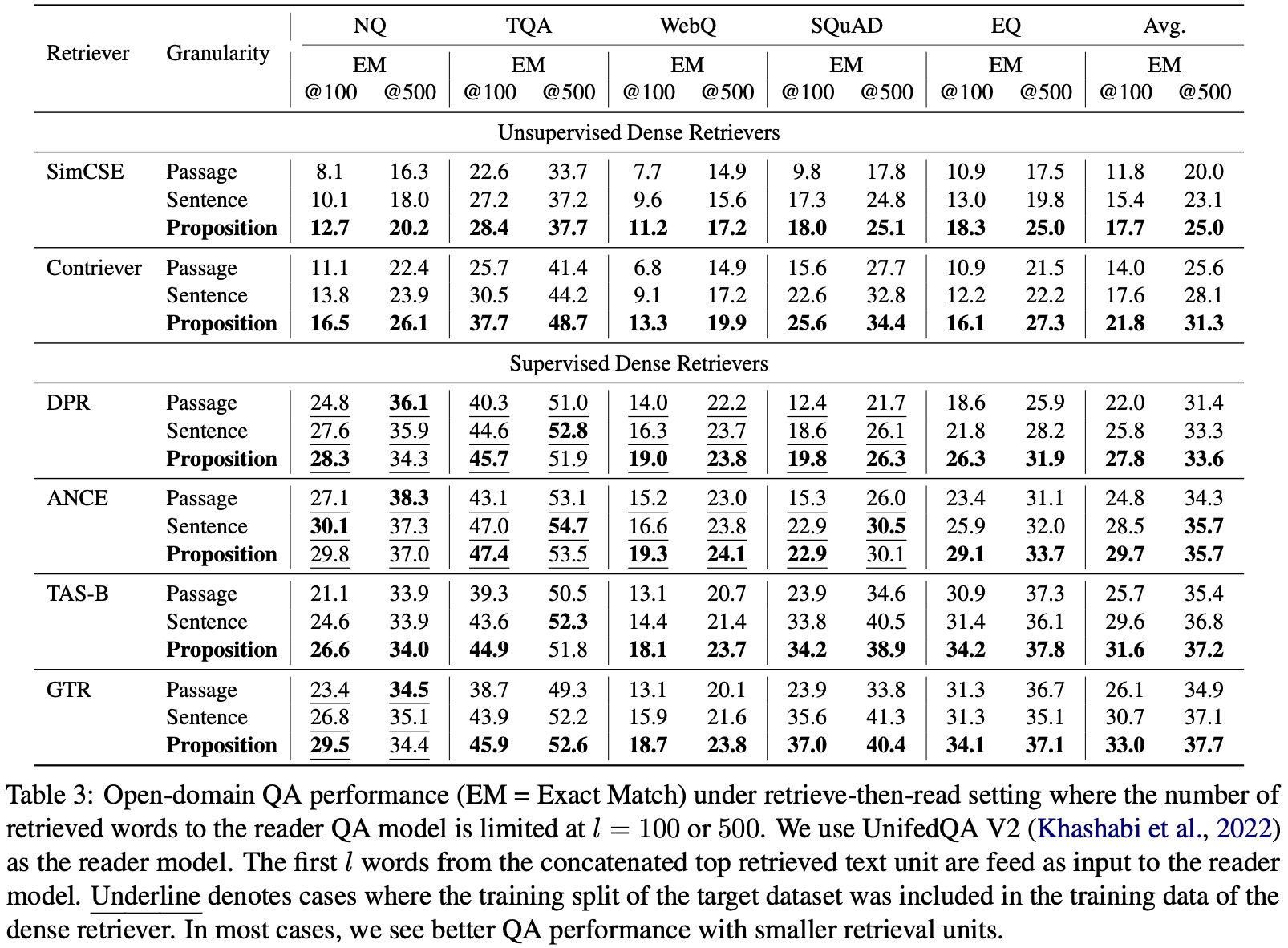Dense retrieval has become a prominent method to obtain relevant context or world knowledge in open-domain NLP tasks. When we use a learned dense retriever on a retrieval corpus at inference time, an often-overlooked design choice is the retrieval unit in which the corpus is indexed, e.g. document, passage, or sentence. We discover that the retrieval unit choice significantly impacts the performance of both retrieval and downstream tasks. Distinct from the typical approach of using passages or sentences, we introduce a novel retrieval unit, proposition, for dense retrieval. Propositions are defined as atomic expressions within text, each encapsulating a distinct factoid and presented in a concise, self-contained natural language format. We conduct an empirical comparison of different retrieval granularity. Our results reveal that proposition-based retrieval significantly outperforms traditional passage or sentence-based methods in dense retrieval. Moreover, retrieval by proposition also enhances the performance of downstream QA tasks, since the retrieved texts are more condensed with question-relevant information, reducing the need for lengthy input tokens and minimizing the inclusion of extraneous, irrelevant information.


